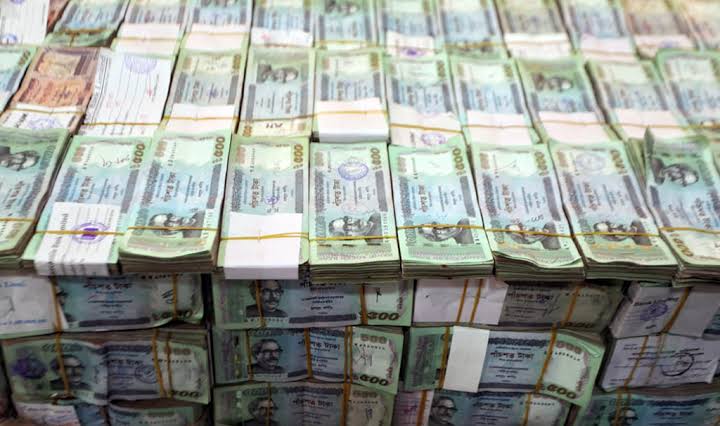SAMI
Published:2020-03-11 08:27:13 BdST
8 in pipeline5 banks build Tk1,000cr fund for stock investment
FT ONLINE
Some banks have expedited the process to build up special funds for investing in the stock market under a relaxed policy offered by the central bank recently.
Five banks have already created a Tk1,000-crore fund, each with Tk200 crore for the purpose.
Two of the banks are state-owned – Sonali and Rupali – and three are private banks – Shahjalal Islami, UCBL and The City Bank. Of the banks, all except Sonali have already started investing in stocks.
Sonali will go for investment under the newly built fund from Wednesday, according to the bank.
Eight more banks – Bank Asia, NCC, Mercantile, Islami, NRB, National, Janata and Agrani – are on the process of building the funds to be invested in stocks.
After seeing lukewarm response from the banks, the Bangladesh Bank on Tuesday asked top executives of all commercial banks over telephone to intensify their efforts to build the fund.
The central bank's telephonic directives came just a day after Dhaka stocks plunged 279 points or 6.5 percent on Monday – the biggest ever single-day fall since the country's premier bourse launched its new key index in January 2013.
Consequently, investors lost over Tk17,000 crore of their capital on the day. The cumulative sum of loss soared to over Tk45,000 crore in the last three weeks.
However, the stock indices rebounded on Tuesday after the central bank's interference, asking banks to accelerate their running investment. The broad index, DSEX, gained 148 points yesterday, according to Dhaka Stock Exchange (DSE).
DSE board meets bank representatives
The DSE board also had a meeting with representatives of listed banks after closing the market yesterday in order to know about the banks' reluctance to avail the facility by creating a fund with their own money or taking repo at 5 percent from the central bank.
DSE representatives requested banks to take the chance and help general shareholders (investors) who own majority stakes.
It is common in economy that when the interest rate declines, the capital market gets a boost, said Md Arfan Ali, president and managing director of Bank Asia.
"Many banks have been increasing their investment in stocks through their subsidiaries as it is a favourable time for them," he said.
He said investment in stocks is now conducive for banks than lending due to interest rate cap. Moreover, banks now have an excess liquidity to build the fund.
Arfan said depositors will also divert their fund to stock investment due to six percent interest rate on deposits.
As a result, funds from both institutional and individual investors will flow in to the stock market, he opined.
However, in the meeting with the DSE, bank bosses pointed out some real problems in the scheme offered by the Bangladesh Bank on February 10.
Mohammed Haider Ali Miah, managing director of EXIM Bank, told the meeting that the central bank offered a mere off-exposure investment opportunity and needs to remove some significant barriers should all the banks need to participate the market support program.
He pointed out that banks will not get any exemption in statutory liquidity reserve (SLR) requirement against the said investment effort.
If a bank withdraws its investment from treasury bills or bonds to build the special fund, its SLR will go down and that has to be fulfilled by any other means, he also said.
"Only who have surplus SLR will be comfortable to build the fund," he said, adding "A free fund from the Bangladesh Bank would allow all the banks to opt in, instead of funding against treasury instruments."
Besides, banks have to maintain 100 percent provision against the 40 percent of the fund mandatorily to be lent to capital market intermediaries as these are still regarded as risk-weighted assets.
On the other hand, Shariah-based banks can not avail or lend the prescribed fund at a fixed rate, which was dictated in the central bank circular.
DSE officials requested the banks to write each of the hindrance factors to the central bank as well as sending a copy of it to the DSE. Later they will advocate for them with the help of the capital market regulator, said Kazi Sanaul Hoq, managing director of the premier bourse.
The meeting at the DSE building in Nikunja was attended by more than two dozen bank bosses, market professionals and officials of both the stock exchanges.
The special scheme
The Bangladesh Bank, on February 10, offered low-cost liquidity support for banks to increase their investment in stocks.
Under the new incentive package, banks can build up the fund from their own source or take the money from the central bank through repo at 5 percent rate.
They can lend this money to their subsidiaries such as merchant banks and brokerage houses at 7 percent interest rate. The tenure of this kind of loans will end on February 9, 2025.
Such an investment will not come under the capital market exposure.
The banks were also given exemption from maintaining provisioning against the investment, according to the central bank circular.
The initiative has opened up an opportunity to bring fresh investment of near Tk Tk12,000 crore from all 59 banks in the country.
The investment opportunity will remain open until January 13, 2025, according to the circular.
Unauthorized use or reproduction of The Finance Today content for commercial purposes is strictly prohibited.


